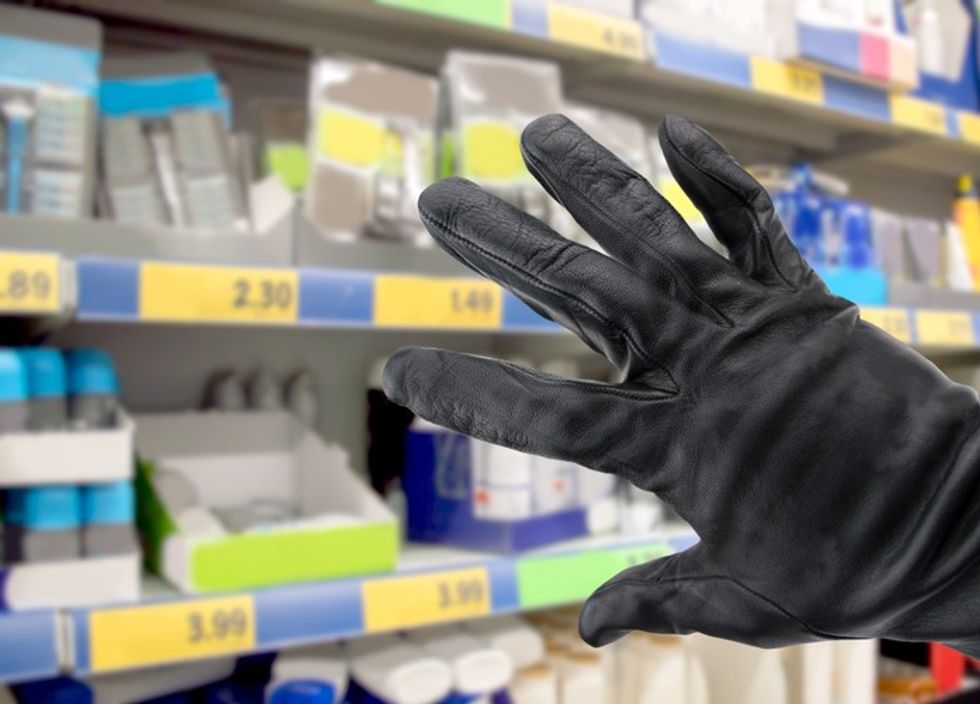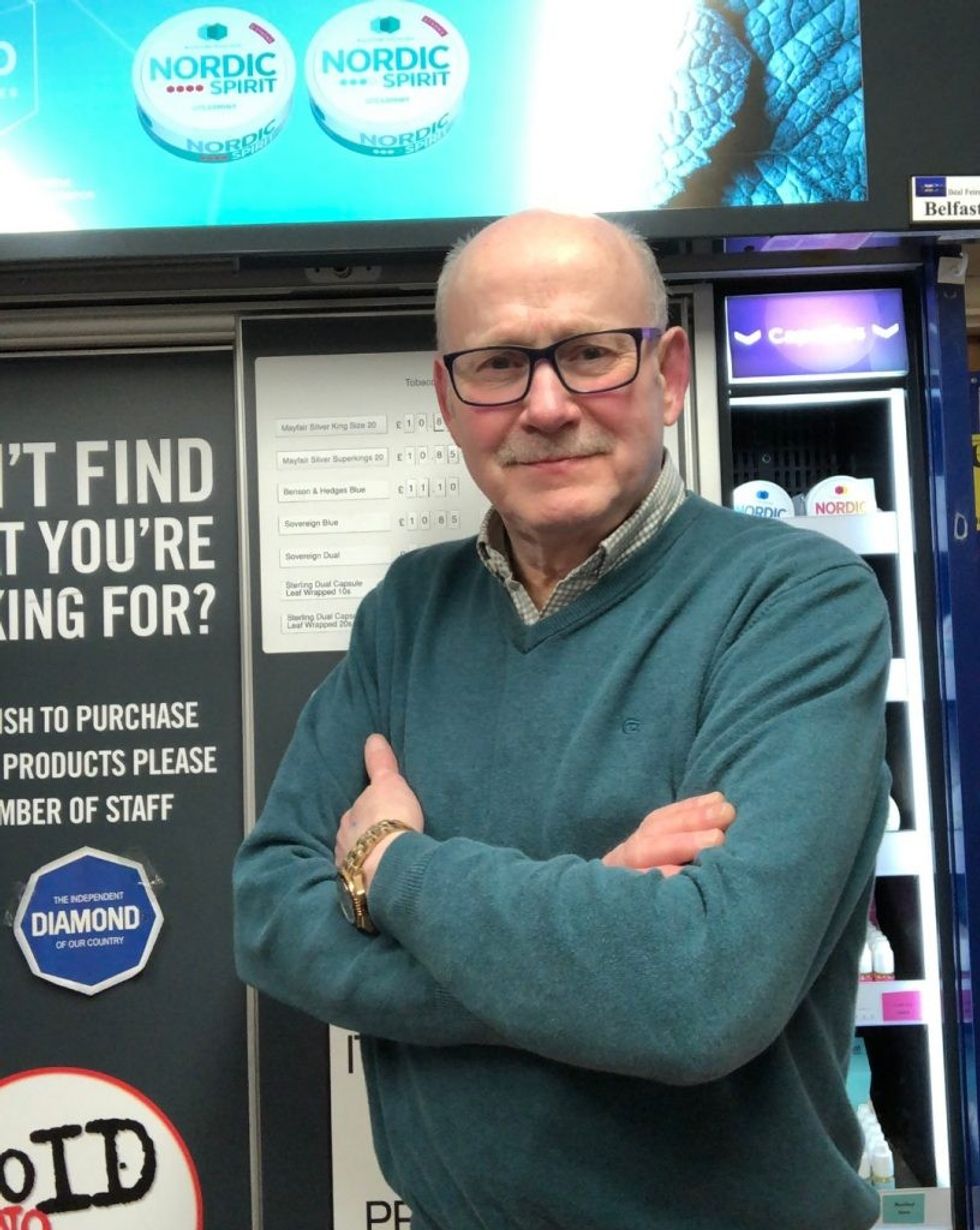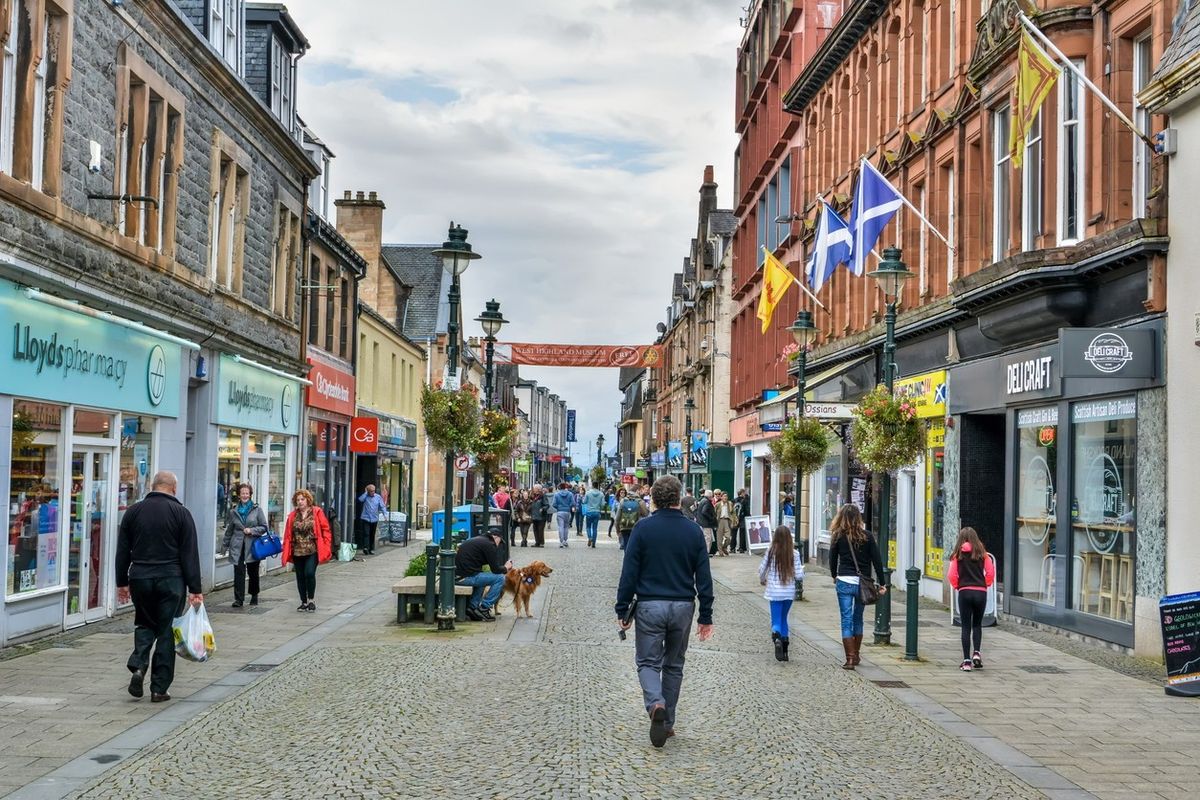Shoplifting is no longer a petty crime. It's gone beyond and evolved into organised blatant daylight looting. And it is local retailers who are paying the price.
Shoplifting is on the rise, and we have endless data to show this- ranging from police numbers to reports by retailers’ bodies to personal accounts of store owners and frontline workers to social media posts.
Shoplifting is getting to the point where gangs of looters arrive at the targeted shop, load it with whatever they picked from the shop and drive away with the loot- obviously using a bag from the same shop. This is not an exaggeration; it is really happening.
Fueled by their addiction and substance abuse, encouraged by police inaction, delayed response and lenient sentences, and enticed by possibilities of reselling stolen items in black market, “professional shoplifters” are hitting retailers alarmingly.
Social media laid the groundwork for growth, providing them a place to show off their skills as well as an accessible marketplace to sell their stolen goods.
In a recent conversation on BBC Radio Scotland’s Drivetime programme, Co-op operations director Kate Graham talked about how stores are witnessing “blatant looting” where sometimes entire shelf is sweeped into bags.
“What we are seeing is blatant looting – people just coming in with a large bag and taking what they want because they are recognising the lack of consequence. We are seeing repeat offenders, and we are seeing prolific shopliftings,” Graham said.
The Association of Convenience Stores (ACS) said it has recorded its highest-ever levels of shoplifting over the last year, with 1.1million incidents reported to the police.
While another retailer body BRC reported that more than 850 incidents of violence or abuse against staff were recorded each day, the ACS said 87 per cent of convenience store workers had experienced verbal abuse over the past year.
Getting Worse
Asian Trader spoke to a few store owners and a frontline worker, and the situation on the ground seems even worse.
According to a retail staff working in a c-store in Cardiff, she faces “shoplifting and abuse at least 150 times in a week”, some of them which leave her questioning her personal safety and choice of profession.
“Post Covid, things have gone really bad. Shoplifters know that we can't do anything to stop them. If we spot someone picking something and putting things in a bag, all we can do is to request them not to pick things like that. However, they hardly listen and keep on picking things without a care in the world.”
“We can’t stop them physically and they know that very well,” said the retail professional on condition of keeping her identity anonymous.
Talking about an incident that happened in her store a few days ago, she told Asian Trader how she and her colleague tried to stop a woman in her 60sfrom filling bags without paying but could not do that.
This woman comes to the store very often and steals goods worth hundreds of pounds almost every visit. When confronted, she says things like “don’t touch me; I know my rights”, said the retail worker.
“Someday, we see only a couple of shoplifting incidents but on those days too, we find some more when we check CCTV footage. Some are regular, blatant and fearless offenders while some are opportunist- if nobody is noticing, they will pick something and we are able to catch and confront them, they will pay or decline to buy the product.”
"Even if we report the matter, police will take a lot of time to arrive and won’t do much in the matter,” she said.
Weeks ago, this retail staff member was pushed and manhandled by one of the drunk customers.

They entered her store around 12 in the night, just before closing time, to buy another 20cans of alcohol. Since the two men were already drunk, she tried to not sell the beer cans. On being refused, one of the men came forward and pushed her, touching her inappropriately.
She dialed 999 but it felt to her that the police took “10 business days” to arrive though the police station is just one minute drive from her store. The incident has left her shaken.
“It’s not safe at all. We are the only convenience store here that remains open till midnight, and we are surrounded by many pubs and nightclubs. That’s why our company has given us some night security as it's not safe since we often see drunk customers coming into a store to buy more and we often have to refuse them, which they don’t take lightly.
“Since we are one of the alcohol license holders, I am responsible for everything what is happening in my work shift. However, since my company is not ready to take full responsibility of my safety, I often get confused on what to do,” she said.
Dismissing the theory that it is rise in the cost of living due to which people are forced to steal basics, the worker stated that these shoplifters are not stealing to eat or survive but they are stealing to sell and get money to fuel their drug and alcohol addiction, saying most of the time, these offenders come to stores already drunk and visibly intoxicated.
Alcohol, milk, meat and expensive cleaning products are some of the most shoplifted items.
Pontefract-based retailer Bobby Singh too feels that retail crime has spiked in recent months.
Incidents have increased from two-three cases a week to something or the other happening every day. This change in pace has happened within the last 12 months, he said.
“It is not just about the theft but also about the level of abuse that we are dealing with,” he said, adding that there has been a sharp change in the “mindset” of offenders as they are now fearless and blunter.
Citing a recent case, Singh recalled how a young man picked up a four-can pack of beer and simply walked out of the store and then ran off.
“It’s blatant daylight robbery- people walk in and we are waiting for them at the counter and they instead run off. It’s very shocking and quite alarming. Gone are the days when shoplifters try to be discreet and show signs of fear of getting caught,” he said.
Since local stores are getting completely ignored by police, primarily because of the small amounts, it is now up to store owners to secure themselves.
“We had to ramp up the training, to be more vigilant, and on how to tackle certain kinds of ugly situations. We have to reinforce certain safety aspects. We have installed screens in front of the tills at our cost.
"It's a very challenging time. We need more police patrolling on the streets. Their visibility can be a good way to tackle this issue and instill some fear in offenders," he told Asian Trader.
A recent Freedom of Information request revealed that 71 per cent of reported incidents were not attended by police officers, Co-op states in a report.
Lack of police action has been pointed out as the common concern here, primary reason being the price of the product involved. But what is being ignored here is shoplifting is not a petty crime anymore. And such cases as daylight theft and blatant looting come hand in hand with abuse and violence towards retail staff.
On a Sunday morning in February this year, a man wearing black hoodie entered decades-old store, Diamonds, in Ballymena in Northern Ireland and roughly demanded cash from the store owner Eugene Diamond.
The man was dressed in a way that Diamond could only see his eyes and could not see him properly. He refused and pressed the store’s panic alarm, so the person fled. Due to the upheaval, the store was closed for four hours that morning and left Diamond completely shaken.
The person was arrested too the next day but it all resulted in nothing as he was let go by the court with the charge withdrawn with a caution.

“The same man arrested was in court in December last year too. I felt that it was badly handled. I think we need to see that people like this go to jail or face some kind of repercussion. But if the court is lenient like this, people end up becoming repeat offenders and we have to pay the price.
“I felt it was a disgrace. Since this is my business so I am here. Had I been a member of staff, I might would have not come back, just like what told to me by one of the staff who said she never would have worked again had she experienced this incident,” Diamond told Asian Trader.
Organised and blatant
Echoing the voices of retail workers, Paddy Lillis from retail worker union Usdaw stated that majority of its members who work in supermarkets and are frontline in retail have been reporting significant recent increases in theft from shops, mainly by gangs and organized criminals, often linked to drugs.
“This increase is driven not by people struggling to make ends meet stealing the odd item in a cost-of-living crisis, it is industrial scale theft. Our most recent annual survey found that 31 per cent of incidents of violence, threats and abuse were triggered by shoplifting, which is not only higher than in 2019 but also more than double the 2016 level,” he told Asian Trader.
Usdaw also pointed out that according to its recent survey, 30 per cent are considering changing their job and 41 per cent feel anxious about work because of high levels of verbal abuse, threats and assaults.
Usdaw is calling on the government to properly fund the police to ensure there are more officers patrolling our streets and shopping centres.

“We also want them to adopt the Protection of Workers (Retail and Age-restricted Goods and Services) (Scotland) Act 2021 and extend its protections to all shop workers across the UK. We also need better coordination to ensure that government, retail employers, police and the courts work together to help protect shop workers, giving them the respect, they deserve,” he said.
British Independent Retailers Association (BIRA) too acknowledges the rise in organised crime.
“There has always been an element of shop theft caused by people with addictions. What we are seeing now looks far more organised. People talk about the cost-of-living crisis, but apathy by the relevant authorities has allowed shop theft to become a low-risk high reward crime for criminals,” Andrew Goodacre, CEO at BIRA, told Asian Trader.
Calling for more police action, Goodacre pressed on the need to tackle black market trading.
“A stronger police presence and better response rates will help, as will appropriate sentences. But we also need to address the black market for the stolen products and what levels of rehabilitation can be provided for those perennial thieves who have addiction problems,” he said, with a warning that with the range of items being stolen from local stores, it seems that "black market has grown and it here to stay”.
Clearly, such experiences are leaving retailers with a bad taste and shaken faith in the police and court. Even shameful is the fact that many such videos are posted on social media platforms like Tik Tok, put on there proudly by the same offenders, almost like a slap on the system’s face.



